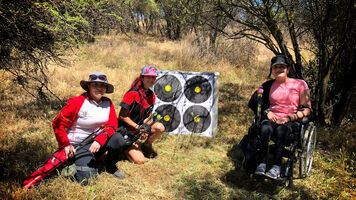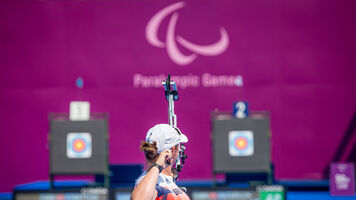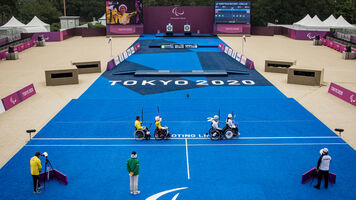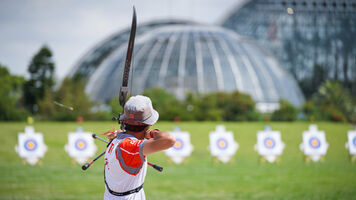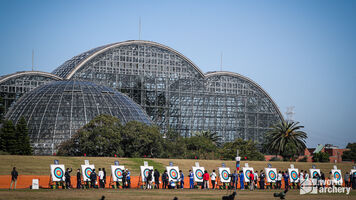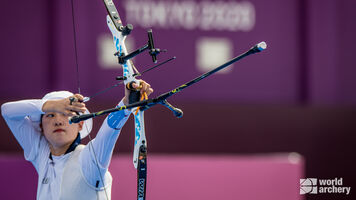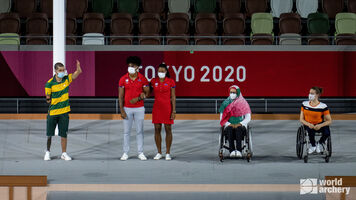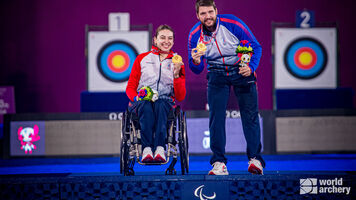An Olympics behind closed doors: Archers weigh in on absence of fans
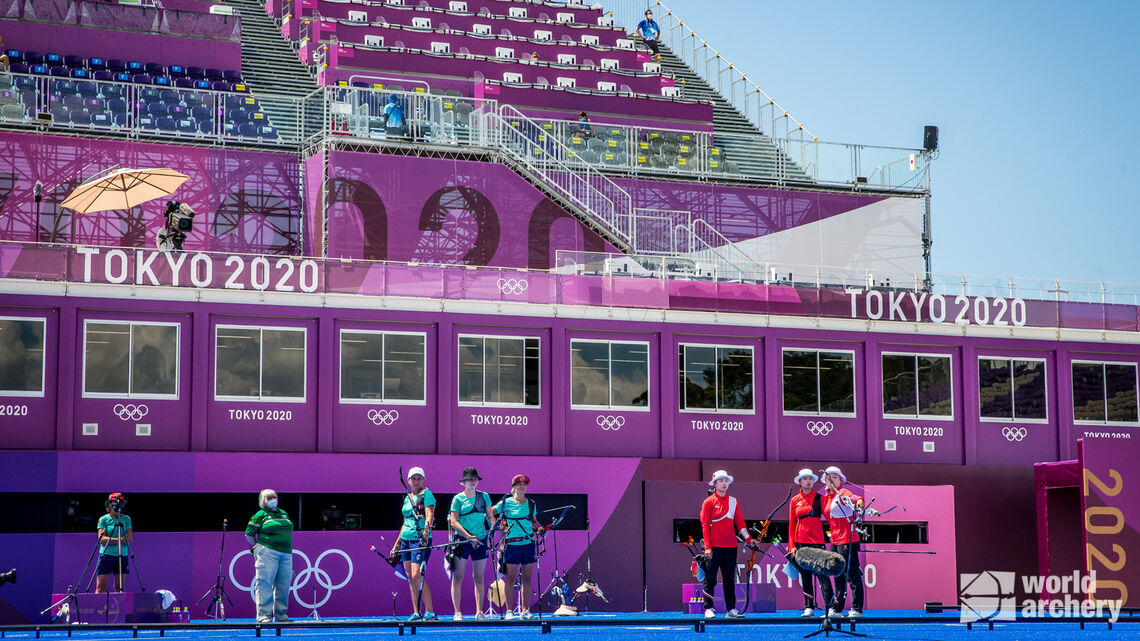
The crowd roared as his arrow pierced through the 10-ring, the excitement in the Sambodromo bubbling over as Brazilian fans cheered on their countrymen at the Rio 2016 Olympic Games.
Bernardo Oliveira had never experienced anything like it.
As an archer, he’d grown accustomed to shooting in obscurity. Large gatherings like this were unimaginable. For the first time in his life, he had to shout just to speak to his teammates.
“I’ll never forget for the rest of my life what it felt like,” Oliveira said of Brazil’s opening-round match against China five years ago. Trailing 2-0 after the initial set, the erudite Olympian stepped to the line eager to give his fans a reason to celebrate.
“I shot it well when I released the string, and I saw this little black dot that appeared in the middle of the target,” Oliveira said.
What followed was a response resembling the exuberance of a goal scored at a football game.
“Absolutely mind-blowing,” Oliveira said. “The noise that followed was deafening.”
The atmosphere has been considerably more subdued this week at the Tokyo 2020 Olympic Games, where the athletes have been deprived of a live audience in an effort to contain the spread of COVID-19.
The archery competitions have proceeded with no fans and no cheering audience – only rows of mostly empty seats, save for coaches and teammates, stretching into the reaches of the arena at Yumenoshima Park.
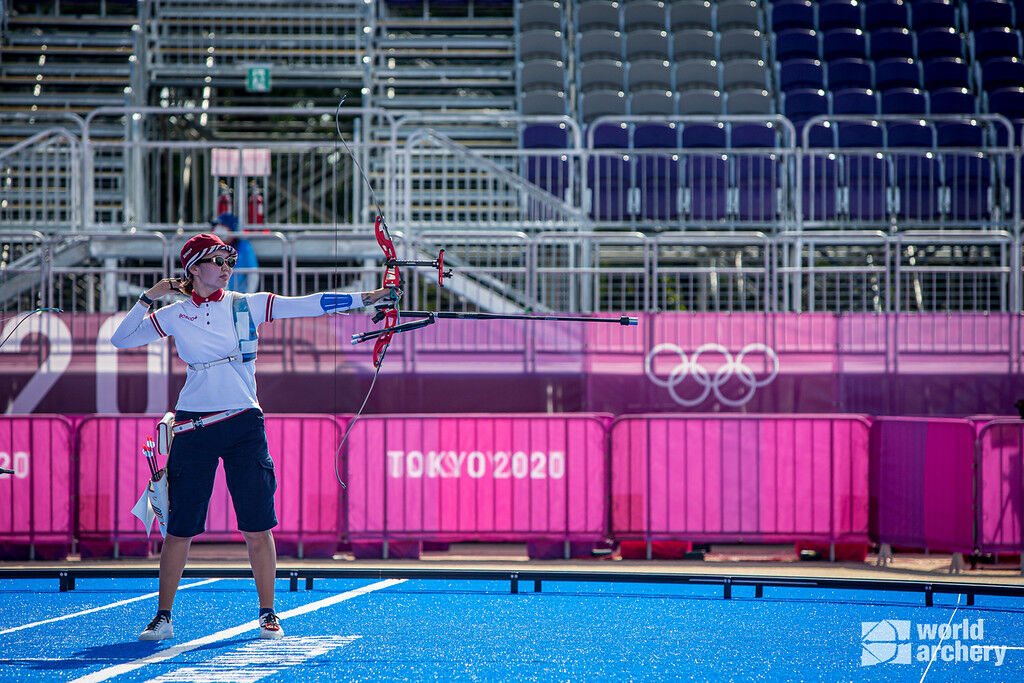
With the events going ahead as planned and medals still at stake, archers have had to grapple with the glaring absence of the public who normally distinguish the Olympics from other events, knowing this year’s edition won’t be the same as previous Games.
“It feels like the Olympics are not,” said Mexico’s Alejandra Valencia of the qualifying field. “There’s a lot of media, but at the same time, it feels like a World Cup… it’s just another competition.”
For the host nation, Japan, the absence of spectators could be particularly meaningful. Archery teams have tended to thrive on home soil, buoyed by a familiarity with the venue and the support of local fans.
Spain collected men’s team gold at the 1992 Olympics in Barcelona; Australia’s Simon Fairweather captured individual gold in his fourth attempt at Sydney 2000; China’s Zhang Juan Juan disrupted Korea’s dominance in the women’s event at Beijing in 2008 – and Korea collected its first of nine consecutive women’s team golds at the inaugural event at Seoul in 1988.
“It’s a whole different story when it’s on your home turf,” Oliveira said. “It was a huge step for us as a programme. From the moment the host nation is decided, there’s just an insane amount of energy that goes into it.”
Host countries typically splurge on their teams to win medals at the Olympics, and Brazil was no exception leading up to 2016. Eager to impress, the nation demonstrated a willingness to spend money on all of its sports, including the niche ones, to capitalise on the spotlight that comes with hosting the world’s biggest sporting event.
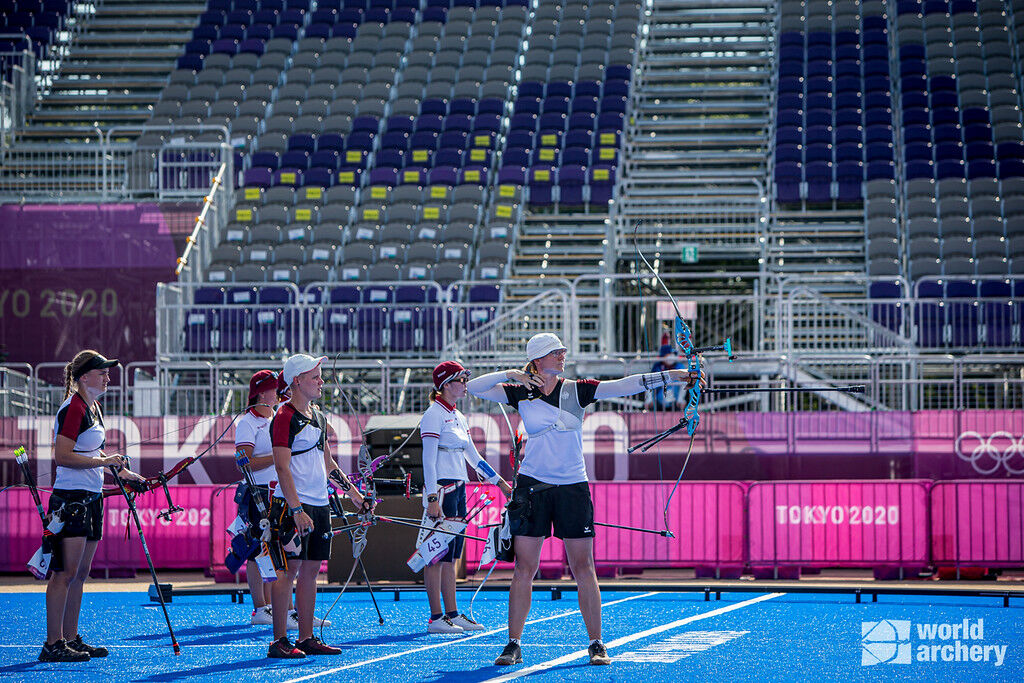
“Brazilian archery was one thing before that, and it’s another now,” Oliveira said. “It’s not only the resources. It’s also the attention and the fact that you’re being followed closely.”
Japan’s archers appear to have benefited already from playing the role of host, winning bronze in the men’s team event on Monday for the first time in Olympic history. The women’s team finished a respectable fifth, and a number of archers performed well in qualifying to set themselves up for individual success as the week progresses.
“Japan being the host country has a great meaning to it,” said Hiroki Muto, who delivered the winning arrow in a tiebreak to secure bronze over the Netherlands. “I was very nervous, but I’m grateful for all the support I've gotten.”
Archery, of course, is a sport where the same piece of information can be framed in different ways.
While some athletes respond positively to the extra attention of a full set of stands, others prefer to conduct their business in anonymity.
“It either breaks you, or it pushes you forward,” Oliveira said. “Some athletes will just crumble thinking about the crowd and wanting to impress them, and others will thrive and excel with that energy behind them.”
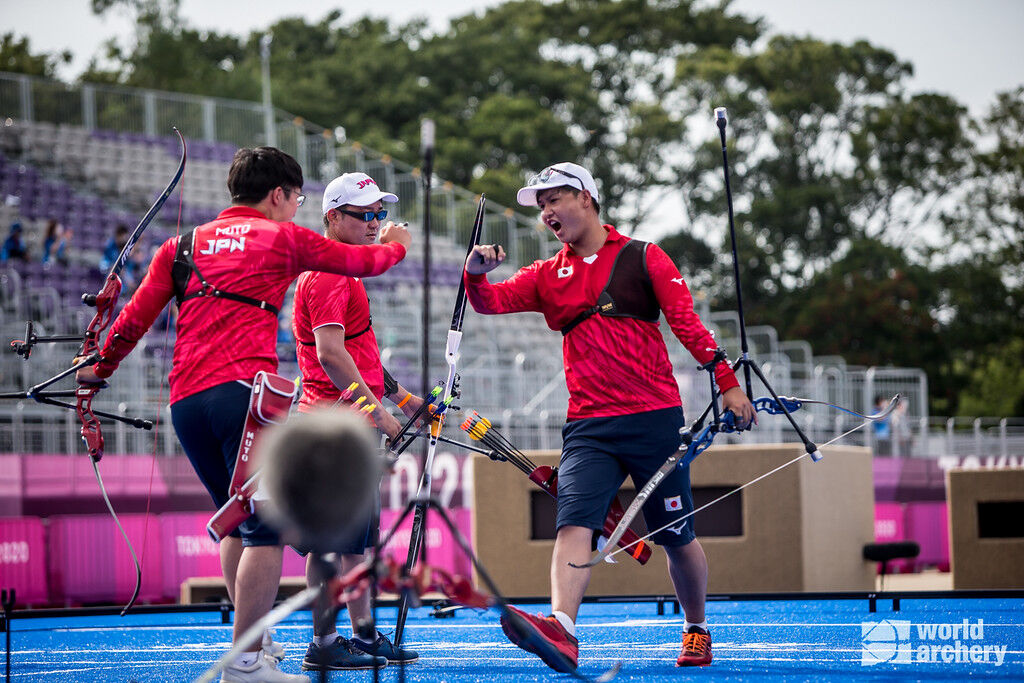
One notable exception to the list of countries that have performed well on home soil is Great Britain during London 2012.
“Straight after, we were all like, ‘why did we let this happen, and why didn’t we see it coming?’” said Naomi Folkard, who is appearing in her fifth Olympics in Tokyo. “We should have done well in London but, as a team, we fell apart. It could have been fueled a little bit by the fact that everyone’s under that little bit more pressure.”
And whether the stands in Tokyo are full or not, a similar level of pressure remains at these Games.
“As the third player, I was the most anxious and felt the pressure. But after winning, I felt relieved and all that pressure released,” said Muto, who broke down into tears after Japan’s bronze-medal-match victory over the Netherlands was confirmed.
“I could get the medal thanks to all people, including people who give me messages on social media,” he continued. “I did my best for them.”
The archery competitions at the Tokyo 2020 Olympic Games continue with individual eliminations until the end of the day on Thursday 29 July 2021.







